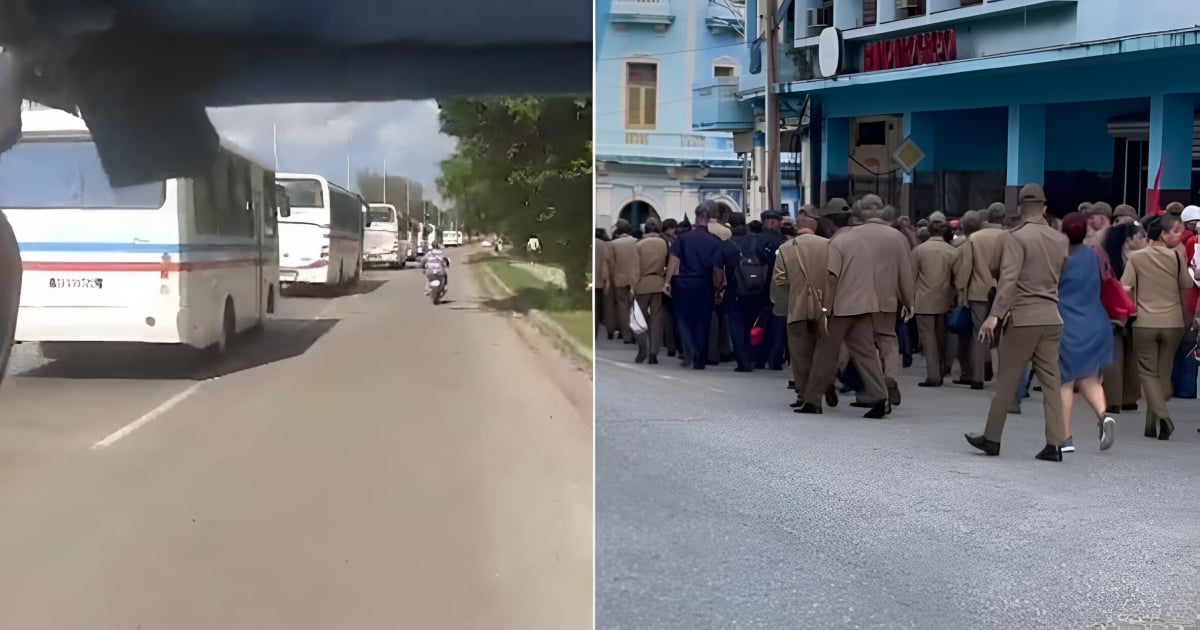The Cuban government has mobilized a fleet of military buses and trucks to transport soldiers for the "March of the Combative People" organized by Miguel Díaz-Canel. Independent portal El Toque shared a video on X showcasing dozens of buses transporting participants.
Amidst the country's severe economic struggles, where fuel shortages impact electricity generation, public transportation, ambulance services, waste collection, and mosquito control, the government spares no expense for what many see as a pointless event. As the clock ticks towards the 4:00 pm start time, images of military units, schools, and workplaces converging on the Havana Malecón begin to surface.
Meanwhile, official social media profiles share images of workers from various institutions, attempting to portray the event as a voluntary gathering. However, many attendees have no choice but to participate, coerced by ministry officials who traditionally mobilize staff from within their workplaces, leaving them with no excuse to opt out.
The Electric Union announced its employees would attend the march, drawing angry reactions from countless online users. Comments such as "Celebrating blackouts and misery," "Their workers march while the people remain in darkness," and "Of course they must be there, front and center, with nothing else to do since there's no power," reflect the public's frustration.
Despite the deep socio-economic turmoil plaguing Cuba, the regime spares no cost to ensure a minimum turnout. An example is the plenary meeting held by the Centro Habana Municipal Assembly of People's Power in a theater, where over a thousand individuals, including representatives from mass organizations, local government officials, and Communist Party members, pledged to guarantee the march's success.
Moreover, the expenditure on diesel to light streets and transport protestors from various provinces starkly contrasts with the prolonged blackouts caused by fuel shortages for electricity generation. Díaz-Canel's orchestrated march, an effort to reinforce his leadership during Cuba's worst crisis, has been criticized for poor allocation of state resources to sponsor a political spectacle while the majority of the populace struggles to survive.
Understanding the Context of the "March of the Combative People"
What is the purpose of the "March of the Combative People" in Cuba?
The "March of the Combative People" is a political event organized by the Cuban government, specifically by Miguel Díaz-Canel, to demonstrate support for the regime and reinforce its leadership amidst the country's severe socio-economic crisis.
How is the Cuban government prioritizing resources for the march?
Despite facing a significant economic crisis, the Cuban government is allocating resources such as fuel and transportation for the march, drawing criticism for neglecting essential services like electricity and public transportation.
Why has the march been criticized by the public?
The march has been criticized for its perceived misuse of state resources at a time when many Cubans are enduring hardships like power outages and economic instability, with some viewing it as a political show rather than a meaningful event.
